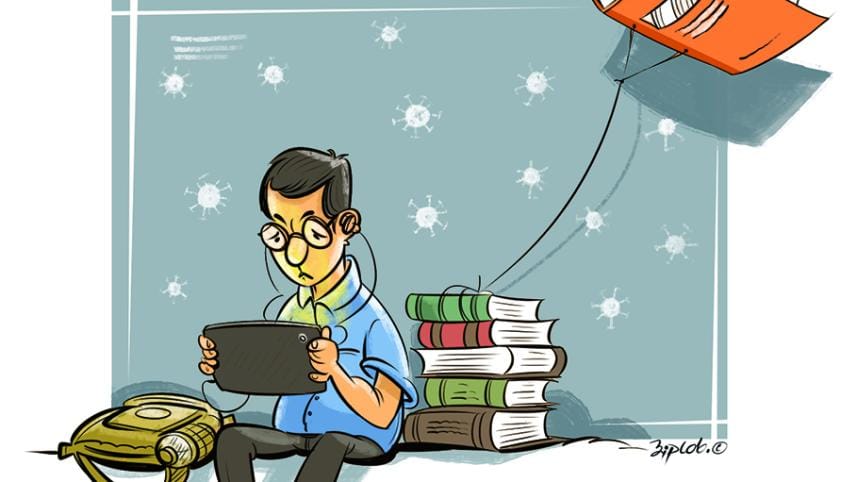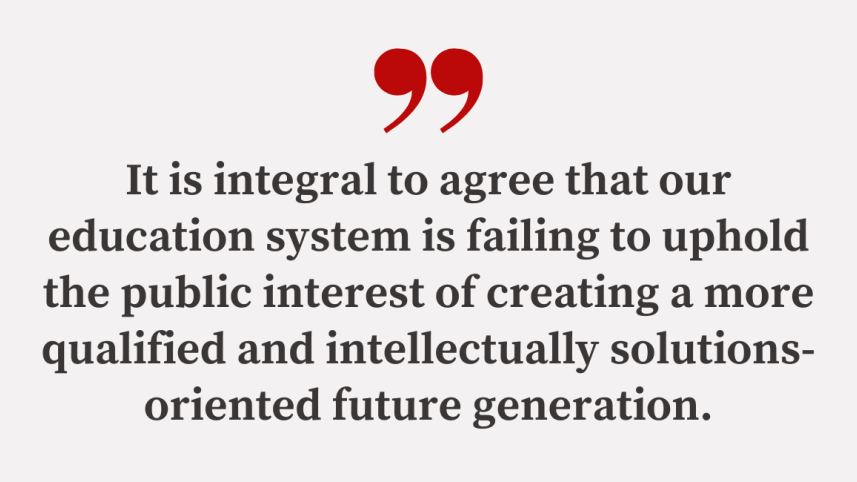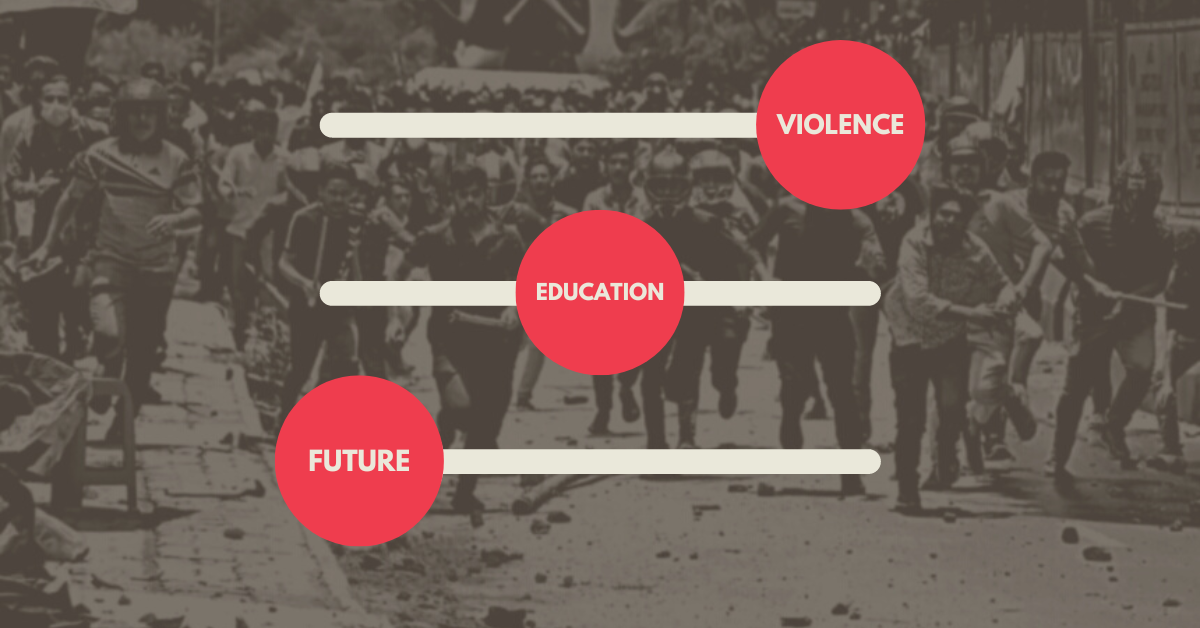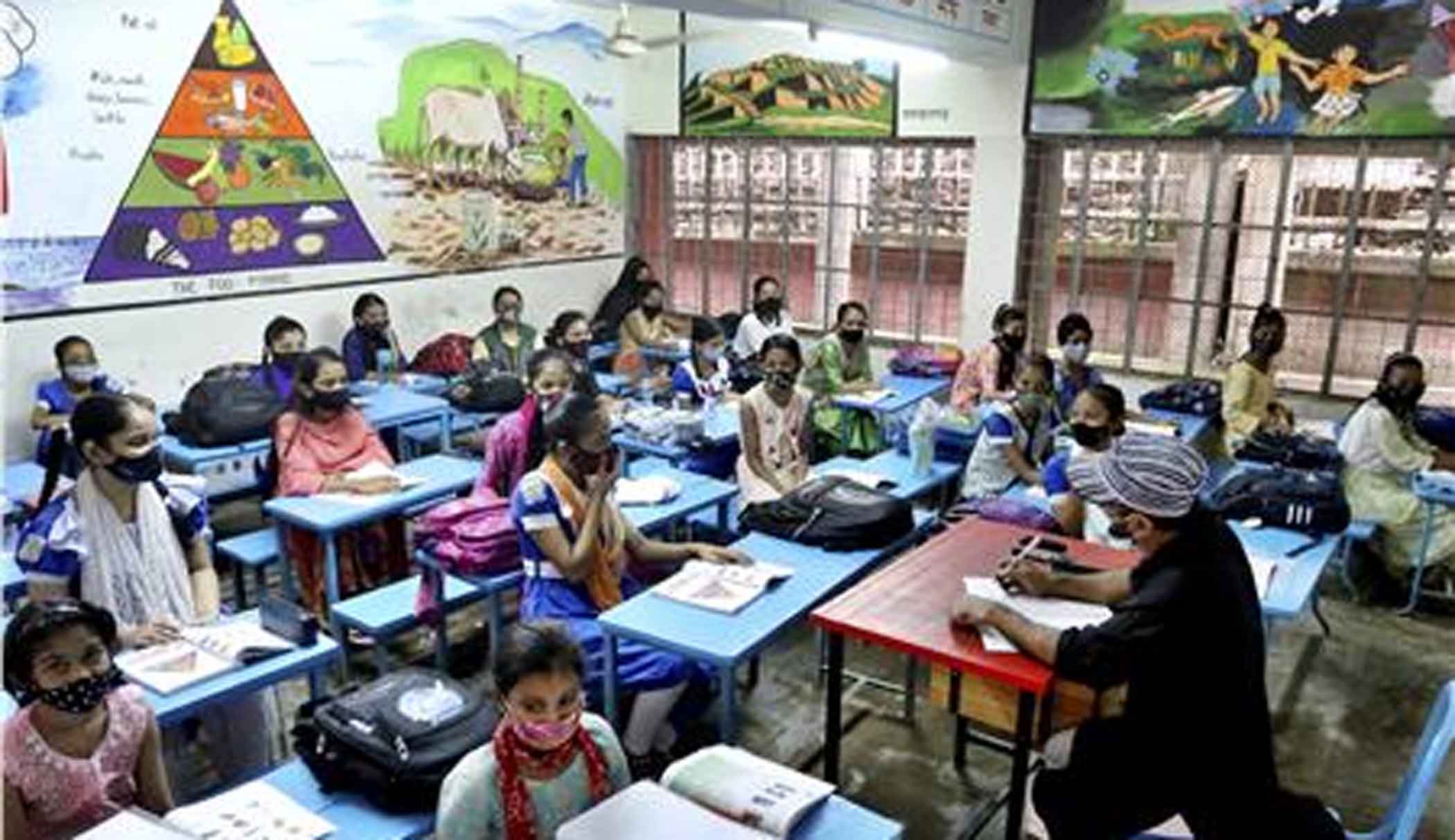Transforming education beyond words and tokenism

What defines public interest? If effective public policies can be used as tools to promote public interest, what prevents us from leveraging the state for the collective well-being of society to the extent that it satisfies the comprehensive needs of the public? "It depends" – is the answer that academics and policy practitioners provide.
Yet, irrespective of what a certain society represents or values, the categorical role of education in enhancing the notion of public good is perhaps the one universal truth to which we all relate to. If investing in education is understood to be in public interest, and if the state propels the notion that Bangladesh is a country that has witnessed unprecedented levels of development over the past decade, then by definition our education sector should be a prominent channel via which the nation can celebrate its developmental achievements. Sadly, the story is quite the opposite.
From villages to cities, one has gotten accustomed to hearing about GDP growth over the past decade. Yet, while there have been political messages and tokenistic proclamations regarding the need to strengthen the education system, the numbers tell a different story. For the 2022-2023 fiscal year, the government decided to allocate roughly 1.83 percent of the GDP towards the education sector; in fact, this year's allocation for education as a percentage of GDP is lower than that of last year. Budgetary volumes have kept increasing quite vividly over the past decade; however, the trend in education spending as a share of GDP has remained stagnant around two percent.
A 2020 report of Unesco indicates that Bangladesh is lagging behind compared to its neighbours with smaller GDP sizes – such as Bhutan, Nepal and even Afghanistan – when it comes to education spending. Unesco defines the optimal average public expenditure on education as roughly four to six percent of GDP. And even as the pandemic demanded a policy response from the government which would mobilise additional resources towards this sector, such has come merely in the form of empty promises and words. The reason why education is not an attractive developmental vehicle for political regimes is due to the very nature of its outcomes. Theoretically, education is a merit good – an economic commodity that has concrete well-being implications and, to a large extent, intangible external benefits. Yes, a quality education will guarantee good jobs and improve the quality of life for the citizens. But its long-term effects are in the form of an intellectually competent and progressive society – one which questions the status quo and stimulates innovation.
However, a return on education from an investment perspective is difficult to ascertain in the short run. The reality is that the political strength of the ruling Awami League has been showcased via its presentation of tangible megaprojects – items that we can see or celebrate, such as the Padma Bridge – and its associated marketing strategy of underscoring why the party needs to remain in power. Education and health are perhaps secondary considerations in light of this.

Educationists in Bangladesh have discussed the challenges beyond a lack of targeted resources as barriers within the sector. A 2019 World Bank report indicated that while 90 percent of the allocated education budget is utilised each year, it is not done systematically throughout the year. More than 50 percent of the total expenditure is carried out in the final quarter of the fiscal year. This is another trend that indicates both a lack of planning and execution. Management of the national education system at the hands of ministerial bodies and government agencies – particularly the inability to holistically reform archaic and deeply outdated syllabi – is another story in itself. Teachers are underpaid, and they are sent to teach without appropriate training. While the government does from time to time showcase its supposed interest to stand by the teachers by investing in training programmes, this remains at a scale that is embarrassingly unsuitable.
So what are the solutions? For one, democracy needs to function in Bangladesh. The parliament, which has effectively become a rubber stamp body over the past decade, has failed to account for the serious lack of state funding towards education. Elected representatives must debate on the political ambivalence towards this sector. Policymakers need to identify solutions to not simply increase the quantity of educational institutions in the country, but do so with a greater focus on creating infrastructure that promotes the quality of education in Bangladesh. Creating an ecosystem for the enhancement of critical thinking, research and promotion of soft skills should be instituted across the board – primarily by reforming the national syllabi followed in classrooms. Eliminating rote memorisation techniques and replacing them by leveraging creative learning practices is a demand of time. Investing in technology is important, but at the same time, investing in the basic needs of schoolchildren such as desks and books is perhaps even more prudent.
As a nation, it is integral to agree that our education system is failing to uphold the public interest of creating a more qualified and intellectually solutions-oriented future generation. Recently, Education Minister Dr Dipu Moni fittingly said that Bangladesh should discuss topics like robotics or artificial intelligence in light of how the world is progressing. While I absolutely agree with the education minister, I ask her to look deeply and conscientiously at the state of Bangladesh's education system. I ask her this question: If your government refrains from putting policy weight behind the education system to the degree that educationists and experts have been demanding for years now, then isn't it valid for the people to assess your statement as nothing more than tokenistic?
It is in the public interest for Bangladesh to have a radical transformation of the education system, and the reality is that only the state has the capacity to do this. Whether it chooses to do so in the near future may very well define the sustenance of the economy and the collective future of Bangladesh.
Mir Aftabuddin Ahmed is currently pursuing a master's degree on public policy programme at McGill University in Canada.




 For all latest news, follow The Daily Star's Google News channel.
For all latest news, follow The Daily Star's Google News channel. 

Comments